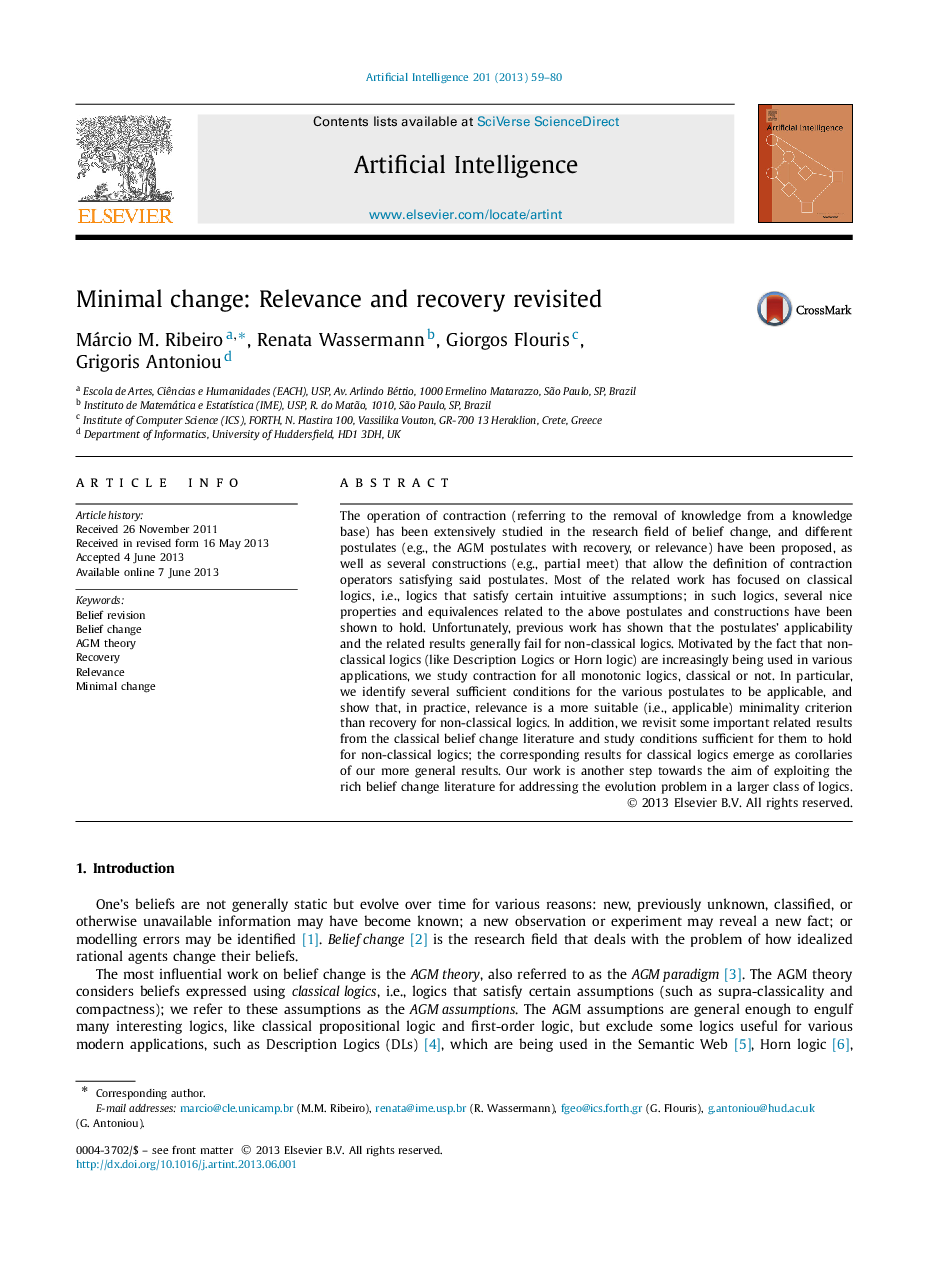| کد مقاله | کد نشریه | سال انتشار | مقاله انگلیسی | نسخه تمام متن |
|---|---|---|---|---|
| 376923 | 658340 | 2013 | 22 صفحه PDF | دانلود رایگان |

The operation of contraction (referring to the removal of knowledge from a knowledge base) has been extensively studied in the research field of belief change, and different postulates (e.g., the AGM postulates with recovery, or relevance) have been proposed, as well as several constructions (e.g., partial meet) that allow the definition of contraction operators satisfying said postulates. Most of the related work has focused on classical logics, i.e., logics that satisfy certain intuitive assumptions; in such logics, several nice properties and equivalences related to the above postulates and constructions have been shown to hold. Unfortunately, previous work has shown that the postulatesʼ applicability and the related results generally fail for non-classical logics. Motivated by the fact that non-classical logics (like Description Logics or Horn logic) are increasingly being used in various applications, we study contraction for all monotonic logics, classical or not. In particular, we identify several sufficient conditions for the various postulates to be applicable, and show that, in practice, relevance is a more suitable (i.e., applicable) minimality criterion than recovery for non-classical logics. In addition, we revisit some important related results from the classical belief change literature and study conditions sufficient for them to hold for non-classical logics; the corresponding results for classical logics emerge as corollaries of our more general results. Our work is another step towards the aim of exploiting the rich belief change literature for addressing the evolution problem in a larger class of logics.
Journal: Artificial Intelligence - Volume 201, August 2013, Pages 59–80